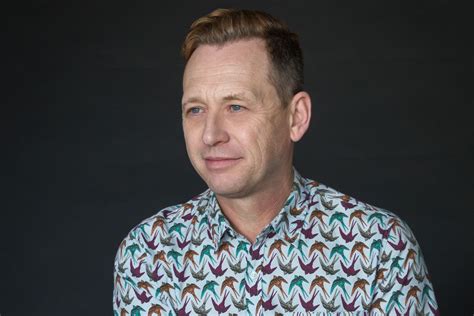A Quote by Victor LaValle
The person you are (in total, at that moment in time) is what creates the story you're writing. It's infused in every piece of punctuation, in the plot, in the most minor character who crosses the page. It's all your voice.
Related Quotes
When you are writing, you have to love all your characters. If you're writing something from a minor character's point of view, you really need to stop and say the purpose of this character isn't to be somebody's sidekick or to come in and put the horse in the stable. The purpose of this character is you're getting a little window into that character's life and that character's day. You have to write them as if they're not a minor character, because they do have their own things going on.
In a 22-page comic, figuring an average of four to five panels a page and a couple of full-page shots, a writer has maybe a hundred panels at most to tell a story, so every panel he wastes conveying a.) something I already know, b.) something that's a cute gag but does nothing to reveal plot or character, or c.) something I don't need to know is a demonstration of lousy craft.
When you're writing TV or movies your vernacular is time, it's all based on rhythms, a character takes a beat or two characters have a moment, like everything is about time. And when you're writing a comic, everything is about space. It's how many panels to put on a page, when should you do a full page splash, what is the detail that you see in any particular image.
Chris Claremont once said of Alan Moore, "if he could plot, we'd all have to get together and kill him." Which utterly misses the most compelling part of Alan's writing, the way he develops and expresses ideas and character. Plot does not define story. Plot is the framework within which ideas are explored and personalities and relationships are unfolded.
A dream inspiring a story is different than placing a description of a dream in a story. When you describe a character's dream, it has to be sharper than reality in some way, and more meaningful. It has to somehow speak to plot, character, and all the rest. If you're writing something fantastical, it can be a really deadly choice because your story already has elements that can seem dreamlike.
When I'm writing comics, I'm also visualizing how the story will look on the page - not even always art-wise, but panel-wise, like how a moment will be enhanced dramatically by simply turning a page and getting a reveal. It requires thinking about story in a way I never had to consider when I was writing prose.
It is a little out of touch to presume that someone wants to follow your every observation and insight over the course of hundreds of pages without any sort of payoff. That's why writing isn't a one-way street. You have to give something back: an interesting plot, a surprise, a laugh, a moment of tenderness, a mystery for the reader to piece together.
And after your death, when most of you for the first time realize what life here is all about, you will begin to see that your life here is almost nothing but the sum total of every choice you have made during every moment of your life. Your thoughts, which you are responsible for, are as real as your deeds. You will begin to realize that every word and every deed affects your life and has also touched thousands of lives.


































